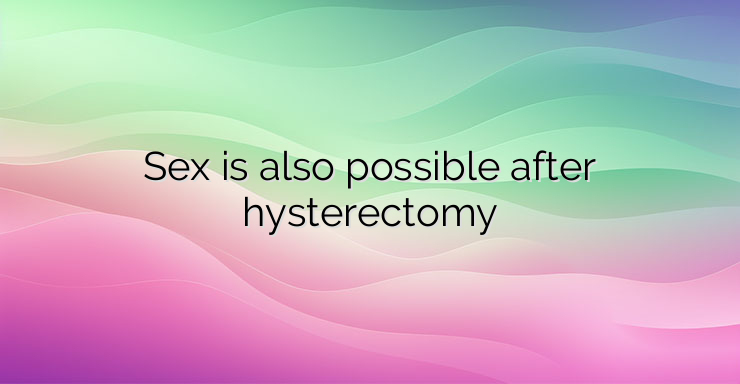Surgical removal of the uterus (hysterectomy) is indicated for a number of diseases and conditions – cancer of the pelvic organs (uterus, ovaries, bladder, etc.), uterine fibrosis, endometriosis, etc. Although many women worry that a hysterectomy may impair their sex life, a number of studies show that their fears are unfounded. What’s more, in some cases the surgery improves sexual experiences. One such study, published in the Journal of the American Medical Association, tracked the sexual function of 1,000 women between the ages of 35 and 49 who had undergone hysterectomies. 90% of the participants did not enter menopause during the study. Researchers from the University of Maryland followed the participants for two years after the operation and concluded that: Sexual activity increased after the hysterectomy – the number of women who had sex at least 5 times a month increased by 10% after the operation. The frequency of orgasms increased – 63% of the participants had orgasms before the hysterectomy, compared to 72% after it. The intensity of orgasms also increased, with the proportion of female participants reporting strong orgasms increasing from 45 to 57%. Pain during sex decreases. The effect of hysterectomy is most noticeable here – the reduction is from 40 to only 15%. NEWS_MORE_BOX Although some women also reported negative effects on their sexual function, most participants enjoyed more benefits than negatives. Hysterectomy is a highly invasive procedure that in most cases is considered as a second or third line of treatment. In some cases, it can be avoided by hormone replacement therapy. A study conducted in 2012 showed that the combination of progesterone and estrogens is the most effective means of improving sexual function in postmenopausal women. In some cases, hormone replacement therapy is also used to prevent the unwanted effects of hysterectomy. Recent studies have shown that hormone replacement therapy is most effective for this particular indication. Each year, 600,000 women undergo hysterectomies. It is believed that between 10 and 15% of operations are unjustified from a medical point of view, the reasons for which can be different – wrong diagnosis or wrong staging of the disease (for example, ovarian cancer), underestimation of alternative therapies, etc.


Leave a Reply